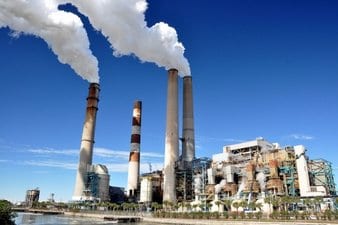Today’s announcement from the United Kingdom that the British Prime Minister – with agreement from other major parties – has agreed to phase out all ‘unabated coal fired generation’ is further evidence that developed countries are increasingly recognising the need to transition electricity markets from coal.
This is another warning to investors on the increasing financial risks of stranded assets. Coal mining and the associated infrastructure assets are at risk, as are the Governments who continue to peg their economies on the hopes of continued growth in the coal industry.
“Continuing an economic strategy that rests on coal investments for growth is putting the Australian economy at increased risk as it fails to facilitate the inevitable transition our energy market.
This announcement from the UK today is yet further evidence that seaborne thermal coal has firmly entering a structural, rather than cyclical decline.
The Climate Coalition pledge, signed by the 3 major UK party leaders, succinctly signals the UK’s intent to act on climate change ahead of the Paris COP meeting.
There are 3 key pledges:
- A strong legally binding pledge to limit the global temperature rise to below 2C.
- Agreement on carbon budgets accordingly under Climate Act.
- Acceleration of the transition to a competitive, energy efficient low carbon economy and to end the use of unabated coal for power generation.
It is concerning to see governments like Australia’s argue that developing countries like India need and must use coal fired generation when developed countries like the UK are turning their back on it. Coal has entirely failed to alleviate energy poverty in India over the last five decades.
Last year, IEEFA released a report which raised serious questions about the financial viability of Australian export coal.
The report found that imported coal would need to be priced at double the current wholesale price of electricity in India, which categorically discredits the argument that increasing India’s reliance on imported coal might alleviate energy poverty.
The good news is that energy efficiency and renewables are increasingly affordable and effective: wind, solar and hydro can be built faster and cheaper, building domestic infrastructure investment and jobs in addition to acting as a deflationary driver in the economy.
A key difference between coal fired power generation and renewable energy is the issue of inflation: fossil fuels are inflationary while renewables are deflationary,” Mr Buckley said.
Another, as we can see from the boom and bust cycle of the oil price, is that renewable technologies provide great electricity sector security through diversity and reduce unwanted volatility in the market.
The UK’s political leaders have seen the writing on the wall and are moving ahead of the inevitable carbon bubble and stranded asset crunch. This is increasly being accepted by key global financial analysts including Goldman Sachs, Macquarie Group, Deutsche Bank. Bernstein and Citigroup,” said Mr Buckley.
Coal is the most carbon-intensive of fossil fuels. In the power sector, coal accounts for 73% of emissions but only 41% of generated electricity.
There are also a host of other major negative externalities of coal. For example – health damage from air pollution (of which coal is major source) averaged 4% of GDP in the 15 largest C02 emitters in 2010: China 10-13% GDP; Russia 8%; India 5.5-7.5%; and Germany around 5%.
The outlook for coal globally is rapidly changing. The World Bank, the EBRD and the European Investment Bank, have also pledged to limit or cease funding for most coal-fired power generation projects,” said Buckley.
Tim Buckley is the Director of Energy Finance Studies, Australasia for the Institute for Energy Economics and Financial Analysis. He has 25 years of financial markets experience, including 17 years with Citigroup culminating in his role as Managing Director and Head of Australasian Equity Research.








